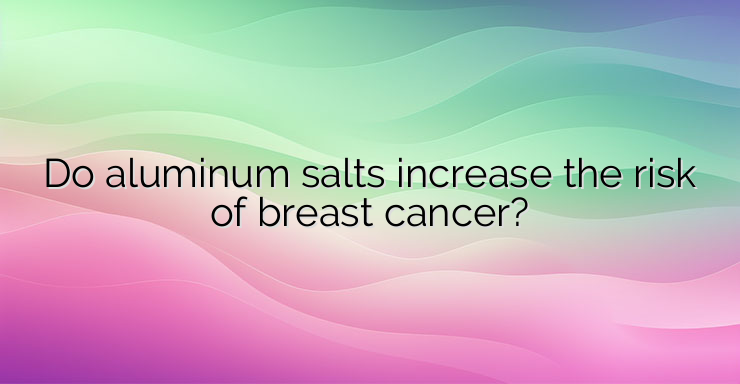The incidence of women worldwide who have breast cancer has risen significantly in recent years. Scientists are constantly trying to find out the reason for this. In an attempt to find answers, two laboratory studies report a possible link between the formation of cancer cells and the aluminum salts contained in the antiperspirants we use daily. Despite the information available, this statement is not entirely accurate. Scientists observe the absorption of aluminum by animal cells and the presence of subsequent genetic changes in these cells. The first study, published late last year, observed a rapid increase in abnormalities in the chromosomal structures of animal epithelial cells. These abnormalities often lead to the formation of tumor cells. The second study, published in September of this year, again examined the absorption of aluminum. The scientists noticed that V79 cells, which are often used for research looking at DNA damage and repair, took up aluminum in the salts. The changes that are seen are double chromosomal breaks. Concerns in this case arise after the replication of functioning cells that can transmit this karyotypic disorder. This type of disorder is seen in many types of cancer cells. However, genomic instability is not always sufficient to lead to cancer development. According to Dr. Jenny Grumley, an oncologist specializing in breast surgery, director of the Margie Petersen Breast Center at Providence St. John’s Center, and associate professor of surgery at St. John’s Oncology Institute in Santa Monica, California, these lab tests cannot make a direct correlation with the influence of aluminum salts on man and his cells. A 2021 study that again looked at antiperspirants containing aluminum salts found no significant link between them and the development of breast cancer. Dr. Grumley, as well as Dr. Catherine Temcinite, who is a senior researcher and communications manager at Breast Cancer Now, share the need to do more serious research on the topic in order to obtain results on which to base conclusions. . At the moment, however, the carcinogenicity of aluminum to human cells has not been proven. For this reason, reducing the risk of breast cancer should focus on lowering other risk factors that have greater clinical significance, such as diet and an active lifestyle. Sources: https://www.mdpi.com/1422-0067/22/17/9515 https://academic.oup.com/nar/article/25/5/992/2360204 https://pubmed.ncbi. nlm.nih.gov/34017723/


Leave a Reply